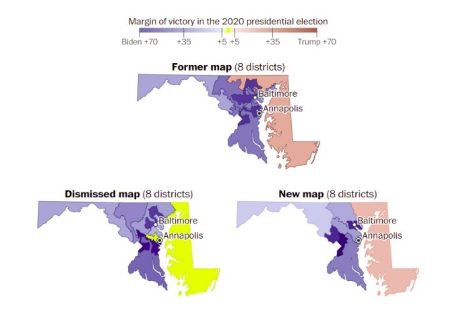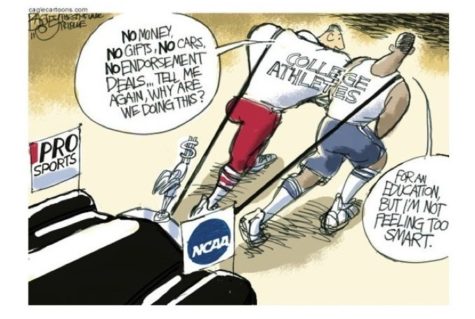Stop That! I’m Domestic
Do you know how many times a teacher or student has assumed I’m from China? Well, I’m not from China! A couple of words can sum up my experience being in an international school as a domestic Asian American student: weird, unique, and shocking. I come from a public middle school in Germantown, MD where being of an Asian background while being a domestic student was really common. I was raised in a Chinese household but grew up with American ideals and dreams. I followed the same Chinese traditions as my parents (and I still do) such as celebrating Chinese New Years or taking off my shoes when I enter the home. But I did American things as well, playing football and singing the national anthem every morning while I was in public school.
I never thought much of being a domestic Asian American student, never thought of the assumptions that I was from China. Of course there were the regular Asian stereotypes that I would be good at math, eat dogs, and have really poor vision. Those are the kind of things you learn to deal with growing up as an Asian American. I was never prepared to deal with the assumption of being from China. I mean how are you supposed to react to the first time someone says, “How do you speak English so well?” or “When did you get to the States?” or “How different is here from China?” I’m always taken aback and need time to find an appropriate response that doesn’t reflect my frustration. I get it: you think I’m from China based on my appearance and the fact almost all Asians at SSFS are from a foreign country. Assuming based on appearance is never okay but that’s the reality.
Here’s one simple idea that anyone can follow to avoid assuming and creating an awkward moment. Just ask if someone’s domestic or not! There is no need to assume and, trust me, it is not an embarrassing thing to ask. In fact I would rather you ask me constantly than to repeatedly assume I’m from China. I had some pretty awkward moments when I first came to SSFS. One time a teacher asked me “Which part of China do you come from?” Another time, I was singled out and asked only to speak English in that class and not Mandarin. That is ignorance without malicious intent. Bringing awareness to people’s ignorance towards Asian Americans important since if I dismiss those people and their comments, I’m no better than they are. Improving on the misconceptions about Asian Americans provides not only a better experience for Asian Americans at SSFS, but for those of us dealing with this around the country.

















Thana Schrock • Apr 30, 2018 at 5:55 am
Great article Qiang. I’ve also experienced some of those assumptions at SSFS, where a couple of people who meet me say hi and go straight to guessing what part of Asia I am from. Cambodia may be my ethnicity, but I am from here!
Muhammed Baldeh • Apr 6, 2018 at 10:29 pm
Marvin, this was an extremely interesting article and I am so proud of you. To be honest, the first time i met you I immediately assumed that you were an international student because of your appearance. I do not believe this was me being ignorant, it was just a calculated assumption as most people of asian decent that attend SSFS are international students. However, I will start to be more mindful of that moving forward. Once again, a beautiful piece.
Sibyl Lin • Apr 6, 2018 at 1:20 pm
From this article, I really hear Qiang Lin’s voice. The assumptions that made by people are really annoying and makes people feel uncomfortable. He expresses his feeling of being an Asian America. As a Chinese, I also feels the assumptions from other people. Especially, I study in the United States. Some of the assumptions are acceptable, but some really are not. I don’t know why people get assumptions that Chinese are good at maths, Chinese eat dog and Chinese have bad versions. Who tell you guys such wrong information! Not every Chinese are good at maths, not all Chinese eat dog, not all Chinese have bad versions. People from everywhere can be good at math, can have bad versions or once will eat dog. I still remember in one of my math class in my summer school. I don’t know why some of the Americans will ask me is there Mcdonald’s, Burger King or domino pizza in China? Such stupid question. How do you think about China? We do not live in countryside, we are not that unmodernized any more. There are many restaurants, or international dishes in China. I am sure that you will amazed by China’s city view when you come to visit China. Assumptions are not good ways to see people.
Albert • Apr 6, 2018 at 1:03 pm
After I read the article, I think stereotype somehow destroys students’ confidence. Last year my esl teachers encourage international students to communicate with domestic students; however, I have similar concerns that because of the curriculum set, international students have little opportunities to communicate with who are titled domestic. I think in the school, there are no differences between international and domestic students: we are students. Likewise, there are no differences between color people and white people.
meghan • Mar 16, 2018 at 10:58 am
i’m so proud of you! great piece.
Christina Song • Mar 14, 2018 at 1:21 pm
I feel like I can hear your voice reading this article. well written, Qiang 🙂